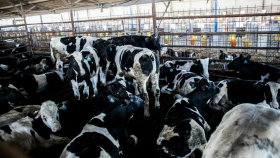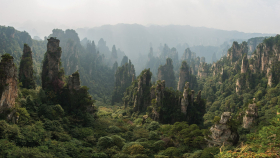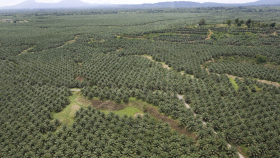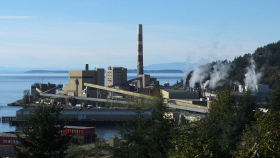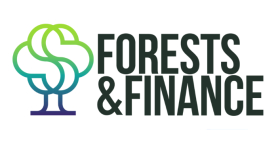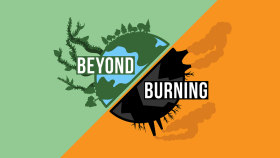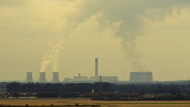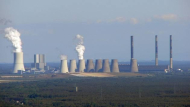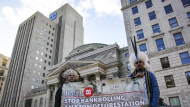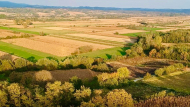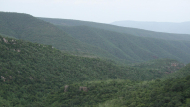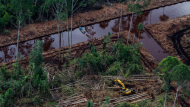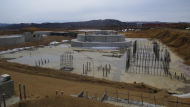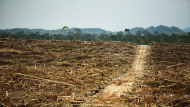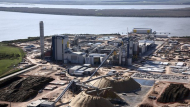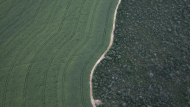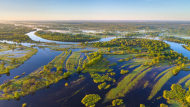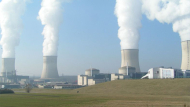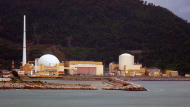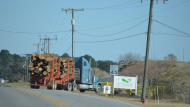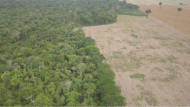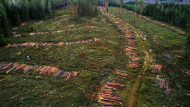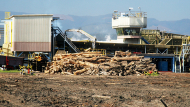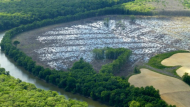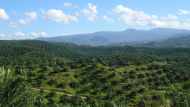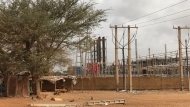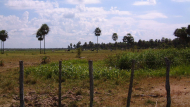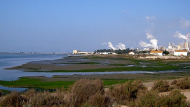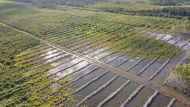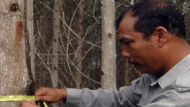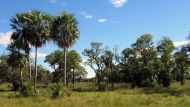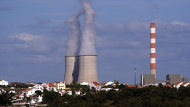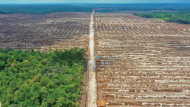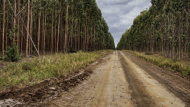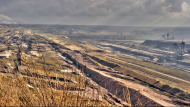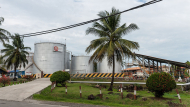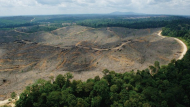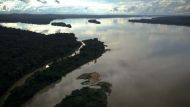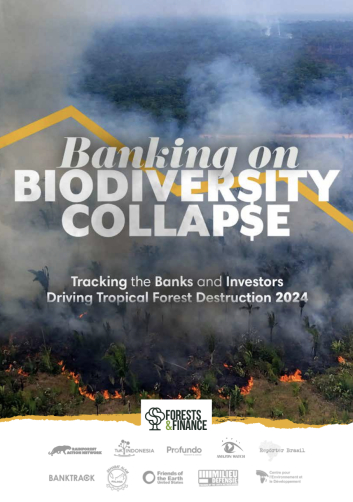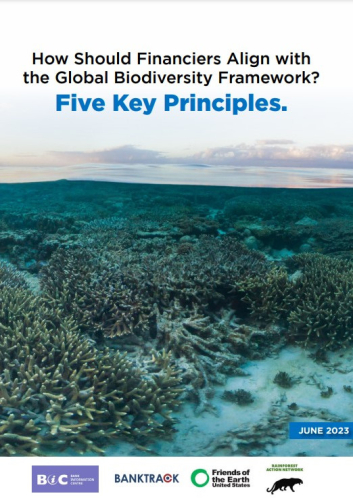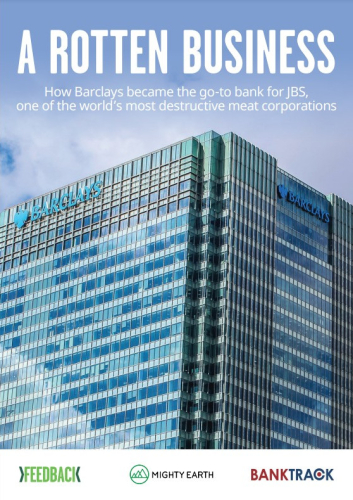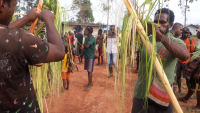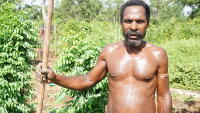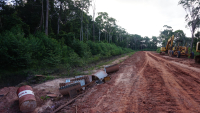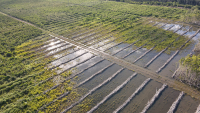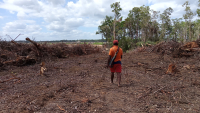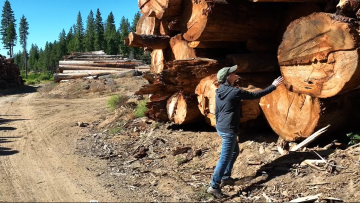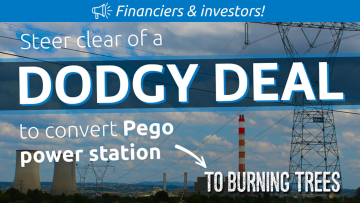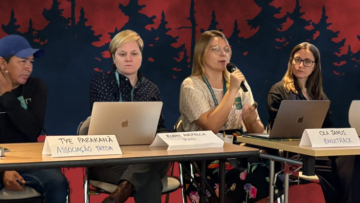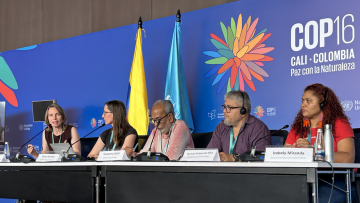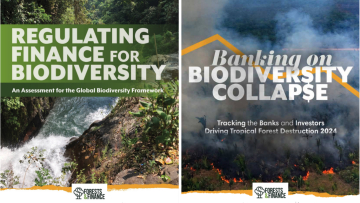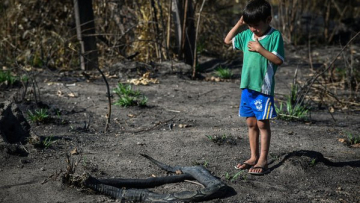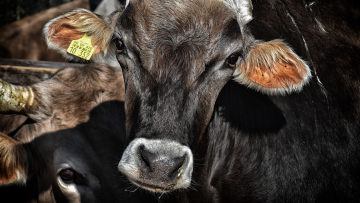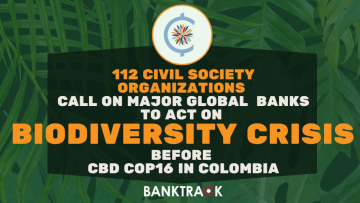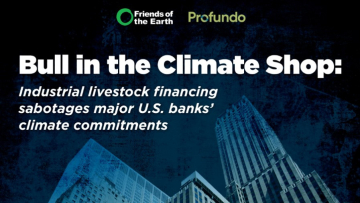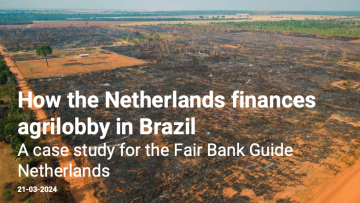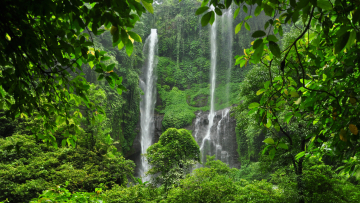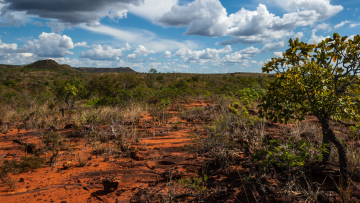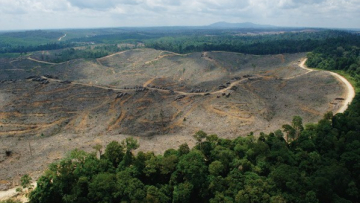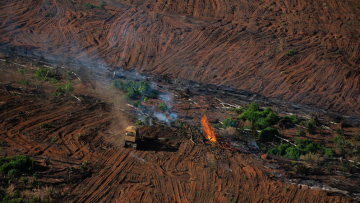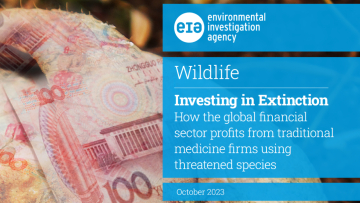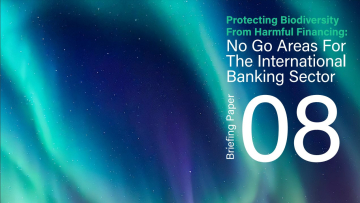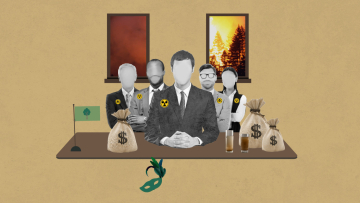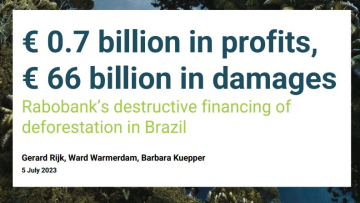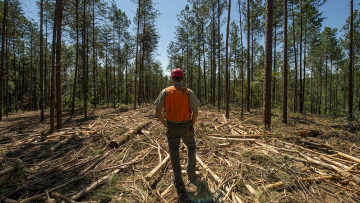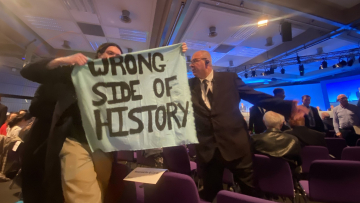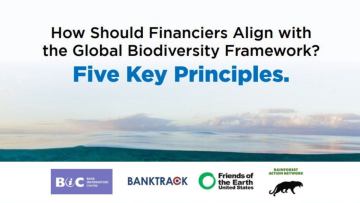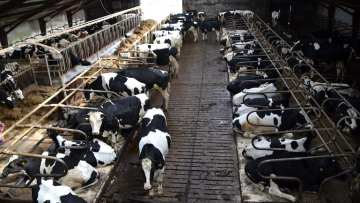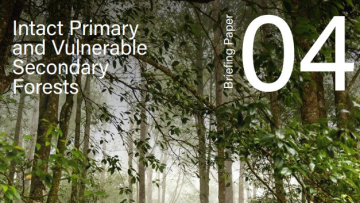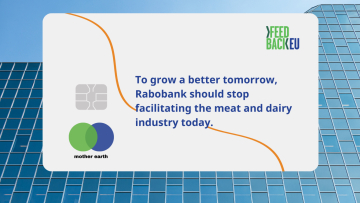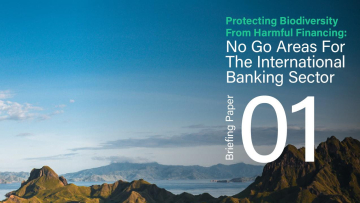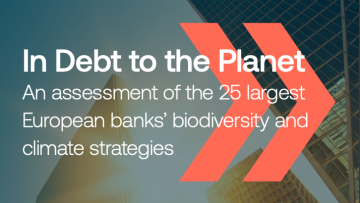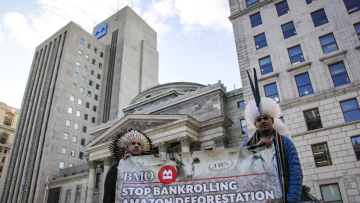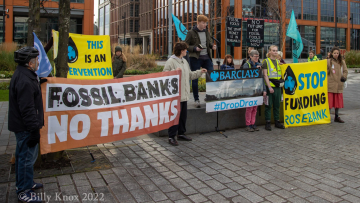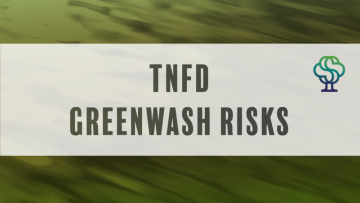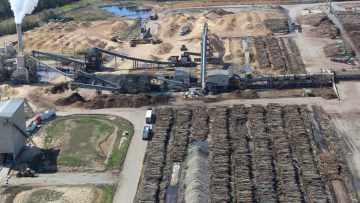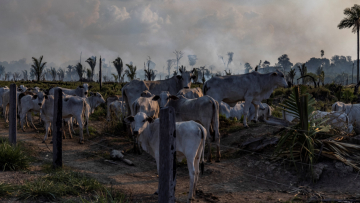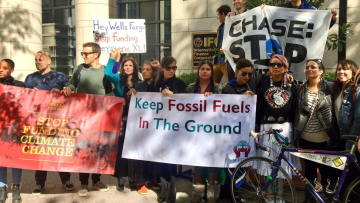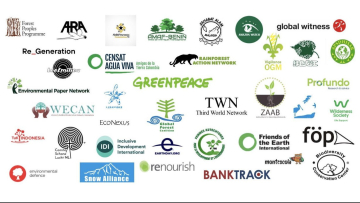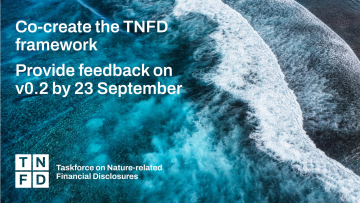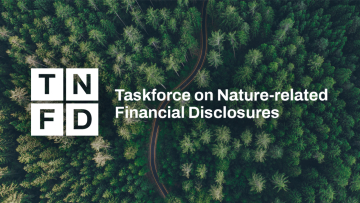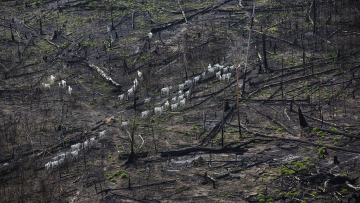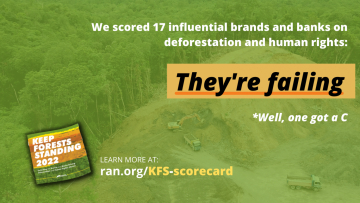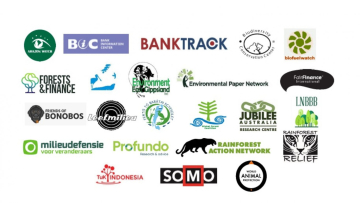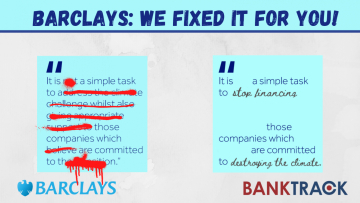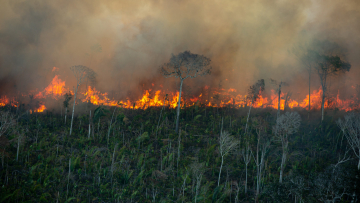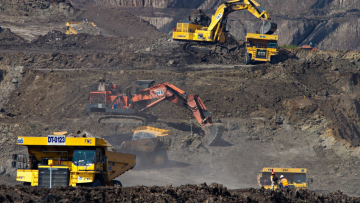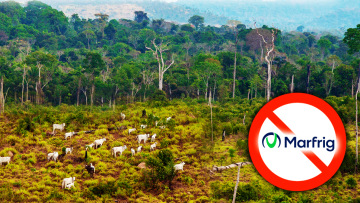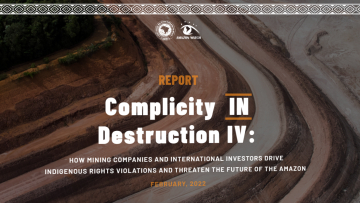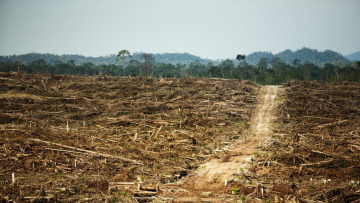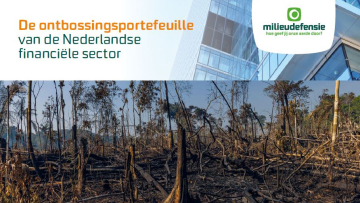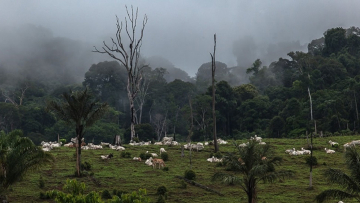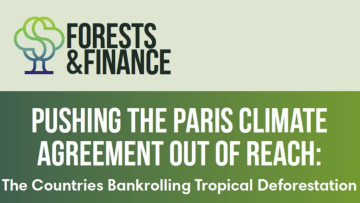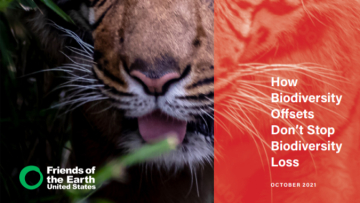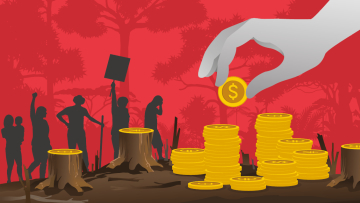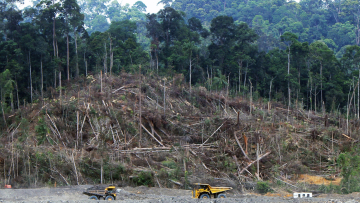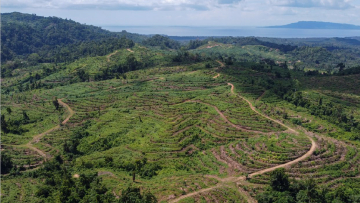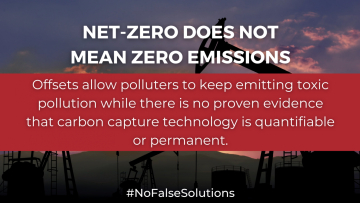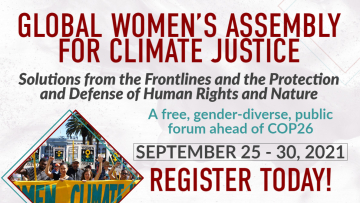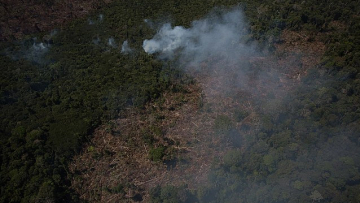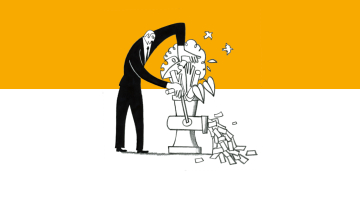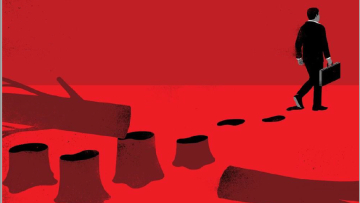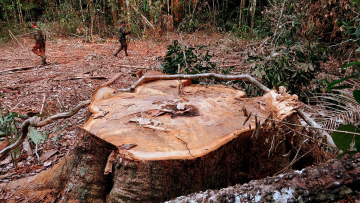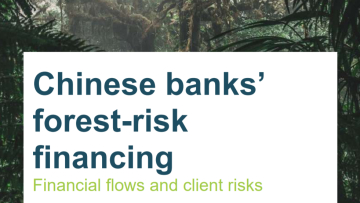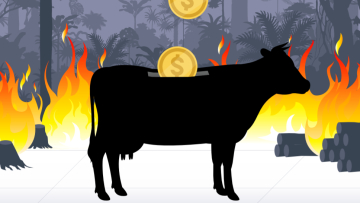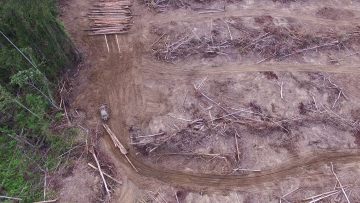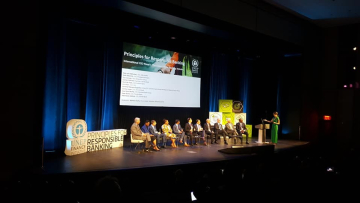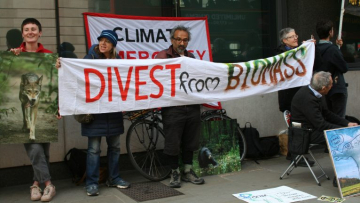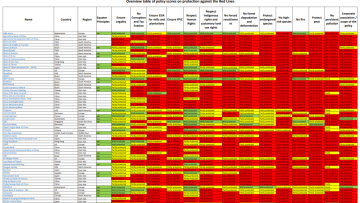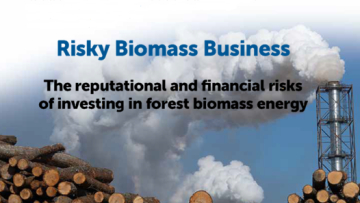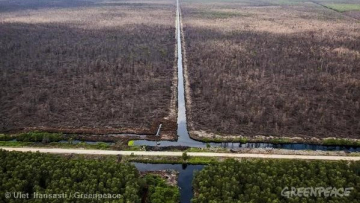Banks and Nature
Ola Janus, Campaign Lead Banks and Nature, ola@banktrack.org

Ola Janus, Campaign Lead Banks and Nature, ola@banktrack.org
A global crisis
The living systems of our planet are collapsing, crumbling under the weight of extractive, fossil-fueled modes of production and consumption that characterise the prevailing global economic model. This model not only fails to address the fundamental needs of most people, creating staggering inequality instead, but actively ravages life on Earth by generating colossal amounts of waste, causing the mass annihilation of plant and animal species, and undermining the stability and resilience of life-sustaining ecosystems. The most biodiverse areas are fast disappearing, with human activity having already significantly altered three-quarters of all land and impacted two-thirds of the seas and oceans. Industrial farming and fishing, logging, resource extraction and waste disposal and other activities all severely impact on temperate and tropical forests, peatlands, wetlands, soils, coral reefs, rivers, oceans and other ecosystems. Sadly, their condition is deteriorating more rapidly than ever, further aggravated by steadily rising global average temperatures due to accelerating climate change.
Linked to other crises
The crisis of nature cannot be separated from other global crises. Climate-related disasters such as forest fires, droughts and floods destroy and disrupt ecosystems globally. At the same time, tackling the climate crisis requires protecting and restoring ecosystems, as forests, soils, peatlands and oceans store vast amounts of carbon, but also because healthy ecosystems act as natural buffers against the impacts of extreme weather. Preserving intact wilderness areas is also crucial to reducing the risk of new pandemics emerging.
Effectively protecting and restoring nature requires strengthening human rights, in particular, those of Indigenous Peoples, uncontacted tribes, local communities and land defenders that are especially exposed to the threats posed by corporate interests globally. Indigenous peoples embody and nurture 80% of the world’s cultural and biological diversity, whilst only occupying 20% of the world’s land surface and comprising less than 5% of the world’s population. As traditional custodians of the land, many Indigenous communities hold deep knowledge and alternative ways of relating to the natural world, rooted in their cosmologies. Their wisdom and practices could offer a vital path forward, making them central to any effort to preserve nature. Yet human rights are continually violated by the mining, fishing, logging, agribusiness, roads and infrastructure and hydropower directly impacting lives, rights and health of the local communities, operating directly on their territories, often without their consent. Every day, land and environmental defenders who demand justice are facing a host of human rights violations in efforts to silence their calls to protect their way of life. In 2023, 196 environmental defenders were killed around the world. If protection and restoration of nature is our best chance at keeping our planet habitable, we must safeguard the rights of those who best protect these most valuable ecosystems.
Role of banks
It is not the primary role of a bank to “protect nature”. Banking revolves around financial intermediation, facilitating transactions, while managing risks associated with lending and investment activities. Traditionally, banks do not see ecological breakdown and the collapse of living systems as a serious risk material to their operations, but this is now rapidly changing, driven by mounting evidence that banks are exposed to diverse risks stemming from biodiversity loss, which can have material financial consequences for companies.
This implies a clear direct interest and responsibility for banks and their boards of directors to systematically manage and reduce these risks to fulfil their fiduciary duties.Through their lending decisions and client selection, banks can choose whether they want to participate in fuelling the ongoing destruction of nature or not.
The Global Biodiversity Framework (GBF) calls for alignment of the financial sector with nature goals. Specifically, banks should assess and report their nature-related risks and impacts to progressively reduce them (Target 15) and integrate biodiversity into decision-making at all levels and align financial flows with the goals and targets of the GBF (Target 14). Banks are also encouraged to increase financial flows to nature conservation and restoration (Target 19). Despite the ecological breakdown we find ourselves in, many banks continue to finance habitat destruction and turn a blind eye to associated human and Indigenous rights violations. Since 2015, banks have provided US$ 395 billion to the production of beef, palm oil, pulp and paper, rubber, soy, and timber in the world’s three major tropical forest biomes: Southeast Asia, South America, and Central and West Africa.
Banks can halt the ongoing disappearance of the Earth's biosphere if they stop financing business activities in high-risk sectors and develop robust policies and practices that guide them towards financing sectors and clients that deliver shareholder value without destroyingthe planet.
What banks must do
The overall aim of the Banks and Nature campaign is to stop banks from financing nature destruction and fast-track finance that protects and restores nature. To achieve this, banks must:
-
Publicly acknowledge, if not already, the scale and depth of the biodiversity crisis and the distinct responsibility of banks to stop the money flow to activities that destroy biodiversity.
-
Explicitly and publicly commit, if not already, to aligning all business activities with the 2030 goals and targets of the GBF.
-
Publish nature transition plans, aimed at progressively reducing the negative impacts of finance on biodiversity and ecosystems and increasing positive impacts, including robust, time-bound goals and targets for aligning all policies and financing activities with the GBF targets.
-
Strengthen exclusions by phasing out finance, and excluding future finance for activities in the eight No-Go Areas identified by the Banks and Biodiversity coalition. These include areas recognised by international conventions and agreements; nationally and sub-nationally recognised areas, habitats with threatened and endemic species and Key Biodiversity Areas; intact primary forests and vulnerable, secondary forest ecosystems; free-flowing rivers; protected or at-risk marine or coastland ecosystems; areas where the Free, Prior & Informed Consent (FPIC) of Indigenous Peoples and local communities have not been obtained; and Iconic Transboundary Ecosystems. Given the severity of the biodiversity crisis, it should become industry standard that no direct or indirect financing is provided for unsustainable, extractive, industrial, environmentally, and/or socially harmful activities in these areas.
-
Exclude finance for high-risk business sectors that have no potential or credible transition pathway towards alignment with the GBF goals such as industrial meat, deep-sea mining or burning woody biomass for power and heat generation
-
Break ties with rogue client companies that fail to end and provide remedy for environmental and human rights abuses.
-
Acknowledge the role of Indigenous Peoples as primary custodians of their biodiverse lands and territories and establish or strengthen policies and procedures that respect and uphold Indigenous rights, including their right to free, prior, and informed consent (FPIC).
-
Maintain zero tolerance towards violence and the criminalisation of land, environmental, and human rights defenders in connection to their own operations or their business relationships.
-
In line with GBF target 15, comprehensively monitor, assess, and disclose biodiversity risks, impacts, and dependencies, along with policy planning and target setting to reduce those impacts and dependencies, with clear goals and timelines; report on performance against those targets and on any actions taken towards clients negatively impacting nature.
-
Install robust accountability frameworks and develop or participate in grievance mechanisms to provide remedy for adverse environmental and human rights impacts, aligned with United Nations Guiding Principles (UNGP) effectiveness criteria.
-
Reject false solutions to the biodiversity crisis, including market mechanisms based on the financialisation of nature, land, and land grabbing, ecosystem services, biodiversity markets, and corporate-led initiatives like the Taskforce on Nature-Related Financial Disclosures (TNFD).
What BankTrack does
BankTrack’s Banks and Nature campaign challenges commercial banks to end finance destroying nature and fast track finance that protects and restores nature. In 2025, we work toward achieving three long-term goals:
-
Banks strengthen their commitment and policies to protect and restore nature, in line with goals and targets of GBF
-
Banks stop financing specific projects and companies with links to nature destruction
-
Banks are held accountable for their past impacts on nature and biodiversity
To achieve these goals we use the following tactics:
-
Mapping finance flows: BankTrack is a member of the Forest & Finance Coalition, which manages a comprehensive open-access database on bank finance and investment in 300 companies directly involved in forest-risk sectors such as beef, soy, palm oil, pulp and paper, rubber and timber. This includes the publication of the flagship Banking on Biodiversity Collapse (BOBC) report and other research activities to inform our own Dodgy Deal campaigning.
-
Strengthen bank policies: The Forest & Finance coalition also conducts policy assessments of 200 financial institutions that have significant financial exposure to forest-risk sectors in Southeast Asia, Central and West Africa and parts of South America. We use this analysis to engage with banks on further strengthening their policies, seeking to instigate a race to the top between peer banks on policy commitments.
-
Target Dodgy Deals: in collaboration with affected communities and other partners we campaign for banks to address the negative impacts of specific projects and companies with severe adverse impacts on climate, human rights and nature. Examples include the Brazilian meat-packing company JBS and the UK energy company Drax which is heavily involved in the burning of wood for energy.
-
Engage with banks and banking initiatives: We directly engage with banks to raise standards, either in banks’ own policies or as part of financial sector initiatives. Together with partners, the Banks and Nature campaign organises calls and webinars with banks on their commitments to nature. We also attend Annual General Meetings (AGMs), bringing issues such as deforestation directly to the Board. BankTrack, Rainforest Action Network and other CSOs have all raised concerns to the Taskforce on Nature-related Financial Disclosures (TNFD) about the serious risks of accommodating greenwashing. In addition, we monitor and engage with banking initiatives such as Equator Principles and the Principles for Responsible Banking to seek further commitments to nature and biodiversity protection.
-
Engage with bank stakeholders: BankTrack, together with partners, advocates with governments and regulators for strong regulation to stop banks from financing projects and companies that have devastating impacts on nature and local communities.
-
File complaints: Where appropriate we file complaints on bank-financed activities with relevant recourse mechanisms, such as those of development banks and the National Contact Points of the OECD.
-
Strengthen movements: Our website provides extensive information for civil society to use. We take part in coalitions including the Drop JBS coalition, convening on private finance in industrial animal agriculture; the Banks & Biodiversity coalition; the Environmental Paper Network’s Biomass Finance Working Group and Pulp Finance Working Group. We organise ‘Finance for Campaigners’ courses to empower others seeking to target finance in their campaigns.



